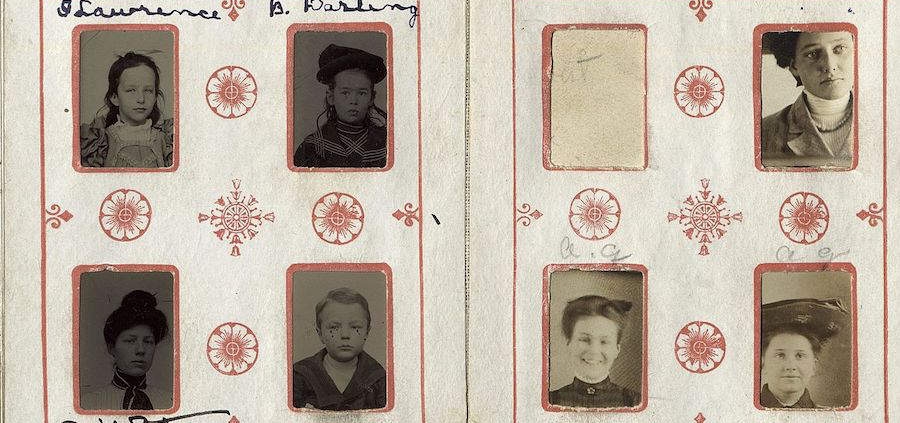The Keepers of the Gifts By Claudette Burque
Though not a new hobby, researching one’s ancestry or genealogy has become quite sophisticated. It is no longer enough to go through census records, church records, or the library’s microfiche machine. Every day we are reminded that websites like Ancestrydna.com are ready to offer, for a price, an enticing look at who and where our ancestors originated. The website 23andme.com shows who shares your ancestry, which may hold many surprises and squelch long-held assumptions. Folks are tapping into these storehouses of information, which are easier to access every year.
What many forget is that ancestral data can be fleshed out by speaking with a family’s keeper of records, often a grandparent or other elder. Grade-school children can be taught interviewing skills, thinking of questions with answers that might be meaningful to them. They can get the ball rolling on a family history project that incorporates personal stories.
Initially, grandparents may begin such an interview process by remembering what was special in their holiday celebrations or other gatherings. From this, other memories are triggered. Nearly forgotten stories become the centerpieces of family reunions, which some enterprising adult may gather into a booklet along with family trees to make connections clearer.
It was my daughter’s taped interview with her maternal grandmother that sent me back to our old family albums along with digital photo memories of more recent events. Luckily, these were organized in files by year and event. From this came the idea to make each grandchild their own special memory book using a document template. The books were individualized by altering the names where appropriate. To involve their grandpa in the process, he was given the task of designing wood covers to be padded with quilted fabric in each child’s favorite color.
Each story began with the introduction of the recipient’s maternal and paternal lineage with a brief description of the who, when, where, how of their lives, including how their ancestors arrived on American soil. A treelike sketch with names and dates along with links was included, showing their own parents. More details were given in a script which read: “A long time ago, before you were born, there lived another family with the same last name as yours. This was your dad’s (or mom’s) nuclear family, and your immediate family of origin was created when they married.” Here and there were inserted photos of interest.
Then the story told of births, vacations, schools, holidays, and sacramental receptions. Hoping to give them a sense of time and place, there was a description of long-ago Christmases focused on their religious aspects, such as midnight Mass. In those days, tradition called for gift-giving on the Feast of the Epiphany. The simplicity of gifts such as a small wooden table-and-chair set with an apple and an orange for each child reminded the recipients of generations growing up during war years, before advances in transportation and refrigeration.
Since the ’70s, I have summarized each year’s happenings in our family in an annual newsletter distributed in December along with our Christmas cards. These newsletters recorded a growing family and, years later, of our children’s leaving the nest for the world of work and to eventually begin their own families. This was the stuff needed to bring special memories back to mind so that they could now be shared.
The best part of the experience was the joy of revisiting people and times long forgotten, albeit not in person. We wrote about friends and travelling with the Good Sam Camping Club, for example. On the receiving end of these detailed heritage stories was the gift of reading and sharing time with each grandchild, as well as the opportunity to answer their questions. Most importantly, the experience allowed us to remember and to model the love of the Holy Family, with their ever-present example of intimacy, communication, and mutual trust.
Claudette Turcotte Burque is a New England transplant to the Bible Belt of central Alabama since 2005. She was actively involved with TAC from 1993 to that time as a writer and on the Board of Directors. She is the author the book Lessons and Memories. She has a master of arts in applied theology and has served as director of religious education in two parishes. She and her recently deceased husband raised four children and enjoyed their growing family of 11 grandchildren. She is currently learning chess in addition to traveling, writing, sewing, reading, and adult education with the Columbus Academy for Lifelong Learning.





Leave a Reply
Want to join the discussion?Feel free to contribute!